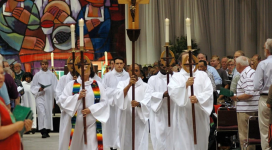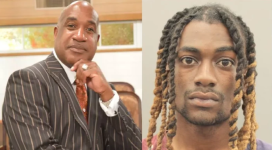A Chinese religious official yesterday confirmed that there was ongoing contact between China and Vatican, but the two prerequisites for normalization of Sino-Vatican relations were once again highlighted.
The top story of the Monday edition of China Daily, China's official English-language newspaper, Ye Xiaowen, director of the State Administration for Religious Affairs, said contact between Beijing and the Vatican "has been continuing all along, but it is hard to set a timetable."
The comment may have contrasted the comment of the Vatican's foreign minister Archbishop Giovanni Lajolo, in which he said recently that "the time was ripe" to form tie. At the same time, Ye insisted on the two terms that have to be met before the diplomatic dialogue can be proceed.
"We can establish diplomatic relations with the Vatican very soon if the two principles are accepted," Ye was quoted by China Daily as saying. "But it is very hard for us to do so if the two principles are violated."
One of the two pre-conditions raised by the Beijing administration is that the Vatican must break its ties with Taiwan. According to the newly elevated cardinal Joseph Zen, the Bishop of the Dioceses of Hong Kong, the Vatican is always ready to forgo the relationship with Taiwan as soon as the religious freedom of Catholics in China is guaranteed.
China has also demanded the say to nominate bishops on its own, rather than direct appointment by the Holy See, as the second condition.
According to an Vatican-affiliated Italy-based news agency Asianews, while Ye insisted on the nomination of bishops by the Government, Ye has shown himself to be more flexible than on other occasions, stating that the problem "may be open to consultation."
One possible compromise between Vatican and Beijing on the nomination of bishops is using the system that Vietnam has adopted. The Holy See presents various names that the government can then choose from. Many official bishops yet opposed the way, saying that Catholics in China should be given "all the religious freedom that the Chinese constitution guarantees."
Zen, who is a strong advocate of religious freedom in China, remains very optimistic to the future of Sino-Vatican relationship. He is committed to become a bridge between the two parties so that they can understand each other better, despite that his elevation does not appear to be welcomed by the Chinese government.
Mainland Chinese officials based in Hong Kong did not turn up for the reception that Hong Kong diocese hosted to celebrate the elevation of Cardinal Joseph Zen Ze-kiun of Hong Kong on March 31, according to Union of Catholic Asian News (UCAN).
The Chinese cardinal said the pope for historical reasons cannot legally take care of the millions of Catholics in mainland China, but that the Holy Father deeply wishes to "help his sons and daughters to live their religious life normally."







